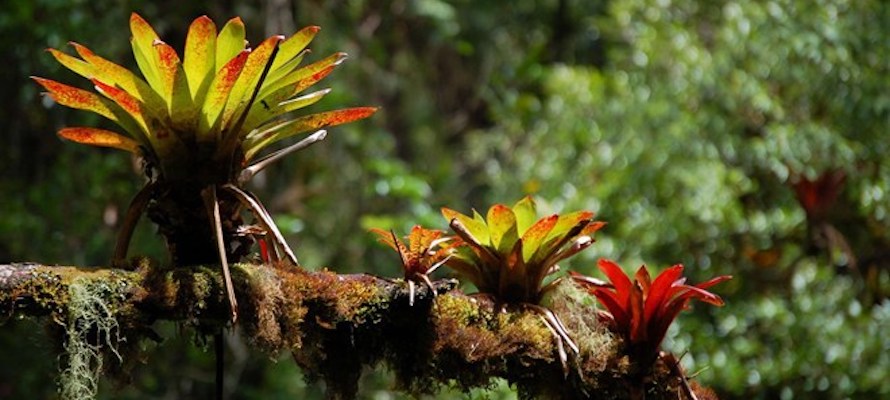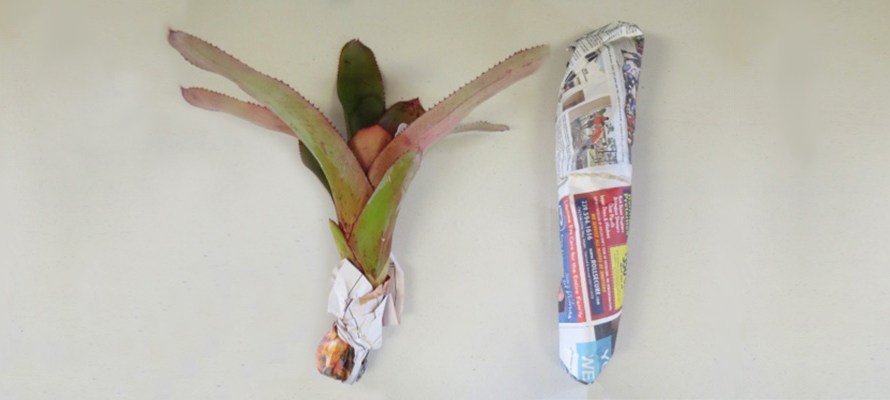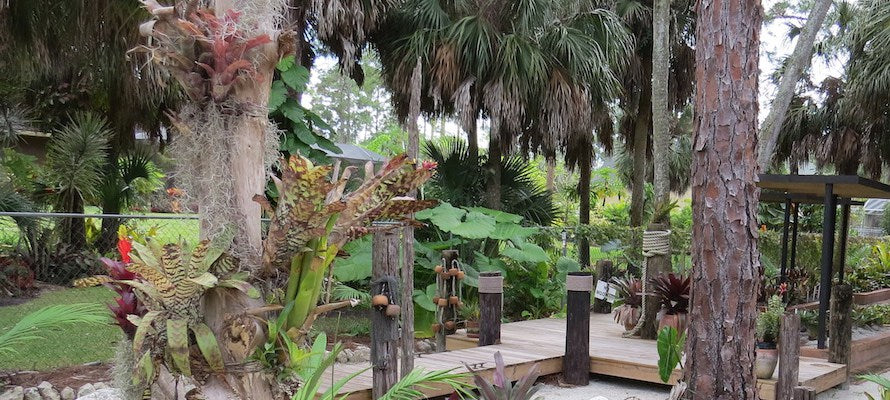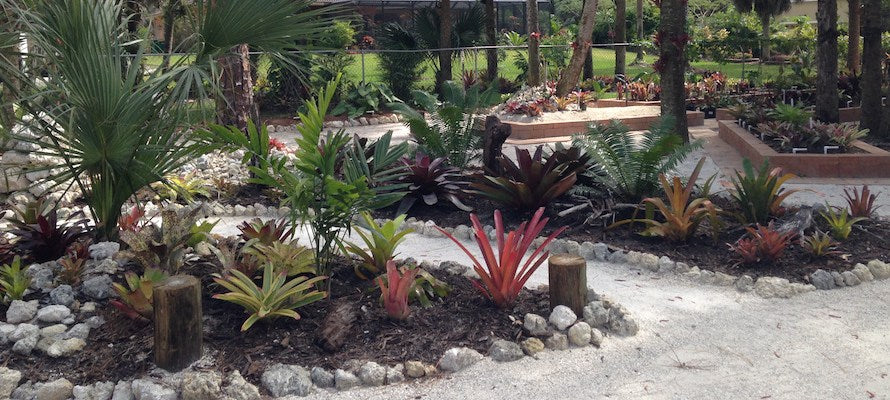Your Cart is Empty
Get Free Shipping on all orders $120 or more.

There are two basic types of bromeliads, terrestrial (plants living in soil) and epiphytic (plants that live on trees or rocks). Some bromeliads will grow either way. It is important for you to determine what type your plant is. This can be done by doing research on the individual species or hybrid, or contacting your seller for more information.
It is important for both types of bromeliads to get the proper air movement, but plants that are in pots have a more difficult time getting enough air to their roots. Correctly potting or repotting a bromeliad is very important because a healthy root system is a key to your plants health. Unfortunately, many web sites may tell you that this is not the case, but don’t lose your plants to this bad advice.
Air Movement is one of the key success factors in caring for your bromeliad.
Since these are naturally outdoor plants that receive constant air movement, they will be healthier if the air does not stagnate. In fact in the wild habitat, the most likely location to find and observe bromeliads will be in areas that typically are exposed to breezy if not windy conditions. Air movement keeps fungus and disease to a minimum by drying out areas that may be prone to disease or infection if kept constantly wet.
Growing bromeliads outdoors usually provides enough air movement when there is enough room between plants. Once it multiplies to the point where you have a clump of bromeliads or if you pack your bromeliads tightly together, overcrowding may occur. If moving air does not reach the center of the clump, fresh air cannot reach the center of the mass, and this overcrowding can cause numerous problems.
Overcrowding your Bromeliads can lead to several problems including fungal or bacterial infections and insect infestations. Infections are generally caused by unsanitary conditions combined with constant dampness. Fresh air provides for a drying out of the susceptible areas that removes the preferred environment of the infectious diseases. This same process also lessons the chance of your bromeliad playing host to insect pests such as mites or scale. Insect pests also favor the same conditions of overcrowding for them to thrive and stay hidden from view.
Bromeliads that are grown indoors tend to not have as many problems drying out because the air tends to be a lot dryer and the plants generally do not get as much water. It is always a good idea however to expose your plants to an open window if it is warm enough outside, or where it can receive some air flow from a vent or a fan. This will stimulate growth and color. If your plants start to look droopy or shriveled, use a spray bottle to spray the leaves and check to make sure the soil isn’t too dry.
It is highly recommended that when growing bromeliads in a greenhouse, exhaust fans are added to simulate the natural air movement that bromeliads get outdoors. If the humidity is allowed to get too high and the air becomes still, the plants will not be able to dry out and will be more susceptible to rot and disease. Small fans should be used in conjunction with exhaust fans (fans blowing air out of the building) to ensure that all plants get proper air.
A shade house outdoors generally gets enough air movement because the breezes are not blocked.
Air movement is often overlooked as a key requirement for healthy bromeliads but fresh air not only keeps pests and infectious disease at bay but is essential in helping your bromeliad keep its natural form. Having good air movement stimulates your plant to produce a stiffer leaf formation and healthier looking leaf structure in general.

When a bromeliad is ordered on-line, it will either be taken as an offset from a mother plant, or it will be taken from a pot. Either way, it is possible that it has already started to grow roots.

Bromeliads are a type of plant called epiphytes, which means that they draw moisture from the air and don’t need to be in soil to survive. While their roots can draw water and nutrients, they typically serve as a plant’s ‘anchor’, attaching and holding it place.

Although mosquitoes are not a pest that can harm your bromeliads, they can become very annoying to everyone around them. Mosquitoes are currently a topic of conversation as common sense and the facts often give way to rumor and sensationalism.